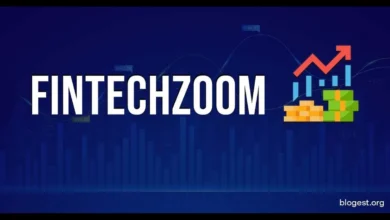
Table of Contents:
- The Origins of Cybersecurity Firms
- The Significance of Knowing Your Cybers ecurity Provider’s Background
- Top Cyber security Threats Facing Organizations Today
- Cutting-Edge Cyber security Technologies
- Cybersecurity Across Different Industries
- Evaluating Cyber security Companies: What to Look For
- International Regulations and Cybersecurity Compliance
Key Takeaways:
- Appreciating the origins of cybersecurity firms aids in the establishment of trust between providers and users.
- An in-depth understanding of cyber security companies facilitates informed decision-making.
- Staying informed about emerging cybersecurity trends and threats is crucial to implement security measures effectively.
Cybersecurity is crucial in our increasingly digital world to protect personal information, corporate data, and national sovereignty. The increasing sophistication of cyber threats drives significant growth in the global cyber security market. The geographical origins and ownership of cybersecurity providers have become a topic of discussion. Consumers and corporations must navigate the web of global cyber security providers, requiring careful observation and an informed perspective.
The Origins of Cybersecurity Firms
Cybersecurity began to safeguard basic computing systems and prevent accidental data loss. Today, it has transformed into a sophisticated industry that protects global digital infrastructures from diverse and dynamic threats. The sector has experienced significant technological leaps spurred by landmark outbreaks and a growing global consciousness of risks. What once was a scramble to patch unexpected system vulnerabilities has matured into a planned, strategic fortress around digital assets.
The Significance of Knowing Your Cybersecurity Provider’s Background
Delving into the company’s background is imperative in partnering with a cyber company like Fortinet China. A history colored by innovation, successful threat mitigation, and strong ethical practices speaks volumes of a provider’s reliability. In today’s digitally-dependent world, the stakes of a cybersecurity breach are sky-high—making trust in competence and ethical standing more than a matter of comfort; it’s a necessity. This backdrop informs potential clients about past performance and projects and the future trajectory of the services provided. Providers with a rich developmental heritage in cyber security often demonstrate a breadth of experience and a depth of understanding that newer firms might not possess.
Moreover, a company’s views on user privacy, data sovereignty, and its track record in incident response can have substantial connotations for its services. A cyber security firm’s protocols for protecting user data, engagement with ethical hacking communities, and agility in responding to new threats reflect its operational ethos and directly impact the level of security afforded to clients.
Top Cybersecurity Threats Facing Organizations Today
Cybercriminals seek vulnerabilities to exploit, while cyber security is continually fortified through technological advancements. Organizations today face an array of sophisticated, covert, and incredibly damaging threats when successful. Ransomware stands among the most formidable of these, with the ability to seize control of critical systems and data—holding them hostage in exchange for hefty ransoms. In a world where data equates to currency, the ripple effect of such breaches can cause financial ruin and erode public trust in affected enterprises. Phishing scams, too, prey on unsuspecting employees and individuals, utilizing social engineering to coax out confidential details or instigate malicious transactions.
The narrative of high-profile security breaches paints a grim picture of the consequences following a cyberattack. Companies have witnessed immediate losses in revenue and operations and sustained damage to their reputation a currency that has been painstakingly built over the years. The onslaught of these threats upon various sectors underscores the integral need for dynamic and resilient cyber security measures that can adapt to evolving tactics deployed by adversarial threat actors.
Cutting-Edge Cybersecurity Technologies
As the war against cyber threats intensifies, the arsenal of cybersecurity tools evolves proportionately. AI and ML are now widely used to predict and prevent cyberattacks before breaching defenses. By analyzing vast datasets and recognizing patterns, these technologies can identify anomalies that signal potential threats and swiftly automate responses to mitigate risks. Further bolstering the cyber security landscape is blockchain technology, with its inherent qualities of decentralization, transparency, and immutability, making it an ideal candidate for securing transactions and protecting data.
The relentless pace of innovation in cybersecurity assures institutions and individuals that they are protected against cybercriminals. Therefore, cybersecurity providers must maintain an innovative edge, adapting their strategies to counteract the capabilities of tech-savvy adversaries and safeguard the digital realm.
Cybersecurity Across Different Industries
The ubiquity of digital technology across sectors has led to a diverse spectrum of cybersecurity needs. Financial institutions stand at the forefront, perpetually grappling with the risk of cyber-attacks due to the sensitive nature of their business. Here, cyber security measures are necessary and are mandated by stringent regulatory standards. On another front, healthcare organizations bear the onus of protecting highly confidential patient data while navigating the complexities of compliance with health information privacy statutes. Each sector carries a distinct digital footprint and necessitates a bespoke cybersecurity approach.
Cybersecurity strategies must be meticulously crafted, reflecting an intimate understanding of specific sector requirements, vulnerabilities, and regulatory climate. The heterogeneity of threats across industries demands that cyber security providers offer a customized suite of solutions, ensuring that sensitive information remains impervious amidst a threatening digital environment.
Evaluating Cybersecurity Companies: What to Look For
Discerning the suitability and strength of a cyber security company hinges on several pivotal factors. A company’s record in thwarting cyber threats, its reputation among peers and industry analysts, and accreditations from recognized standards bodies indicate its proficiency. Testimonials and case studies demonstrating successful protection against cyber threats solidify a provider’s credibility. Examining a firm’s commitment to cybersecurity and a culture of continual learning and innovation is equally essential to ward off evolving threats.
Due diligence in evaluating a prospective cybersecurity partner entails a comprehensive review of their suite of services, understanding their approach to defense mechanisms, and gauging the level of ongoing support offered. Companies must scrutinize how cyber security firms keep their solutions current in an environment that always stays strong to ensure that their digital assets receive the most robust and up-to-date protection against cyber threats.
International Regulations and Cybersecurity Compliance
The internet’s borderless nature adds a layer of complexity to the domain of cybersecurity. As digital threats do not conform to geopolitical boundaries, it is incumbent upon international regulators to craft policies that provide a cohesive defense against cyber threats. Countries around the globe have recognized the necessity of international cooperation, leading to numerous cybersecurity pacts and agreements. Moreover, these international regulations and standards are a stark reminder to multinational cybersecurity providers that they must operate within a framework that promotes a consistent, global approach to security. It becomes even more pertinent in a landscape where data exchange and communication networks transcend national lines, necessitating a harmonized legal structure to enforce cybersecurity measures.
In alignment with this recognition, the international community has established various protocols and policies that demand compliance from cyber security firms. For instance, the Cybersecurity Policies promulgated within the European Union reflect a comprehensive strategy to combat cyber threats across member states. Adherence to these regulations ensures legal compliance and signals a cybersecurity firm’s dedication to upholding high security, privacy, and international cooperation standards.
In sum, the role of cyber security companies in the grand tapestry of digital security cannot be understated. Whether tackling sophisticated cyber threats, upholding international data privacy standards, or tailoring security solutions to specific sectors, these firms constitute the bulwark against the cyber threats of today and tomorrow. Therefore, evaluating cyber security providers through a multifaceted lens delving into their history, expertise, technological innovation, and adherence to international policies becomes essential for individuals and businesses. Through a proactive, informed, and discerning approach to cybersecurity measures, we can hope to uphold the integrity and security of our digital lives.



